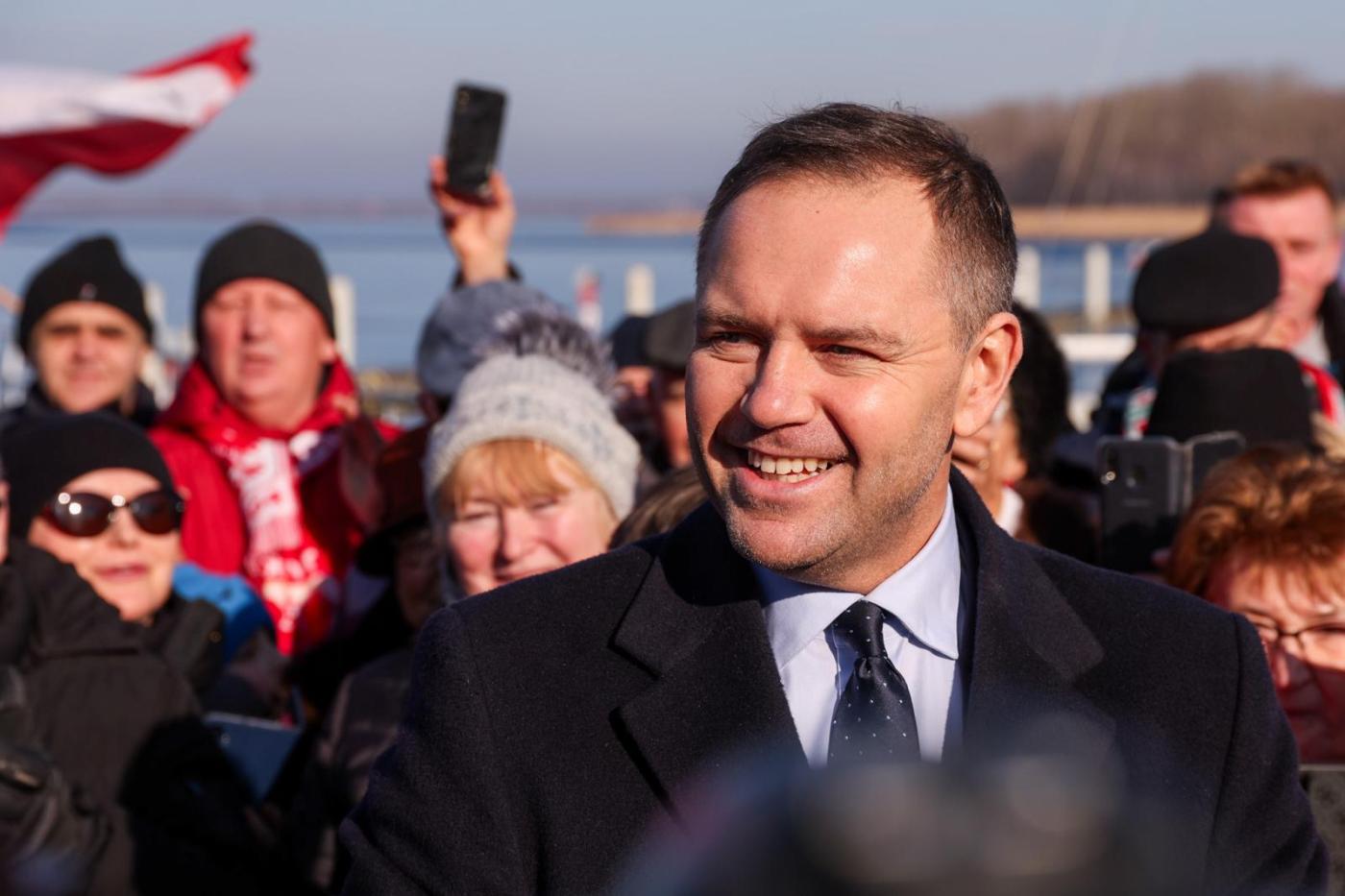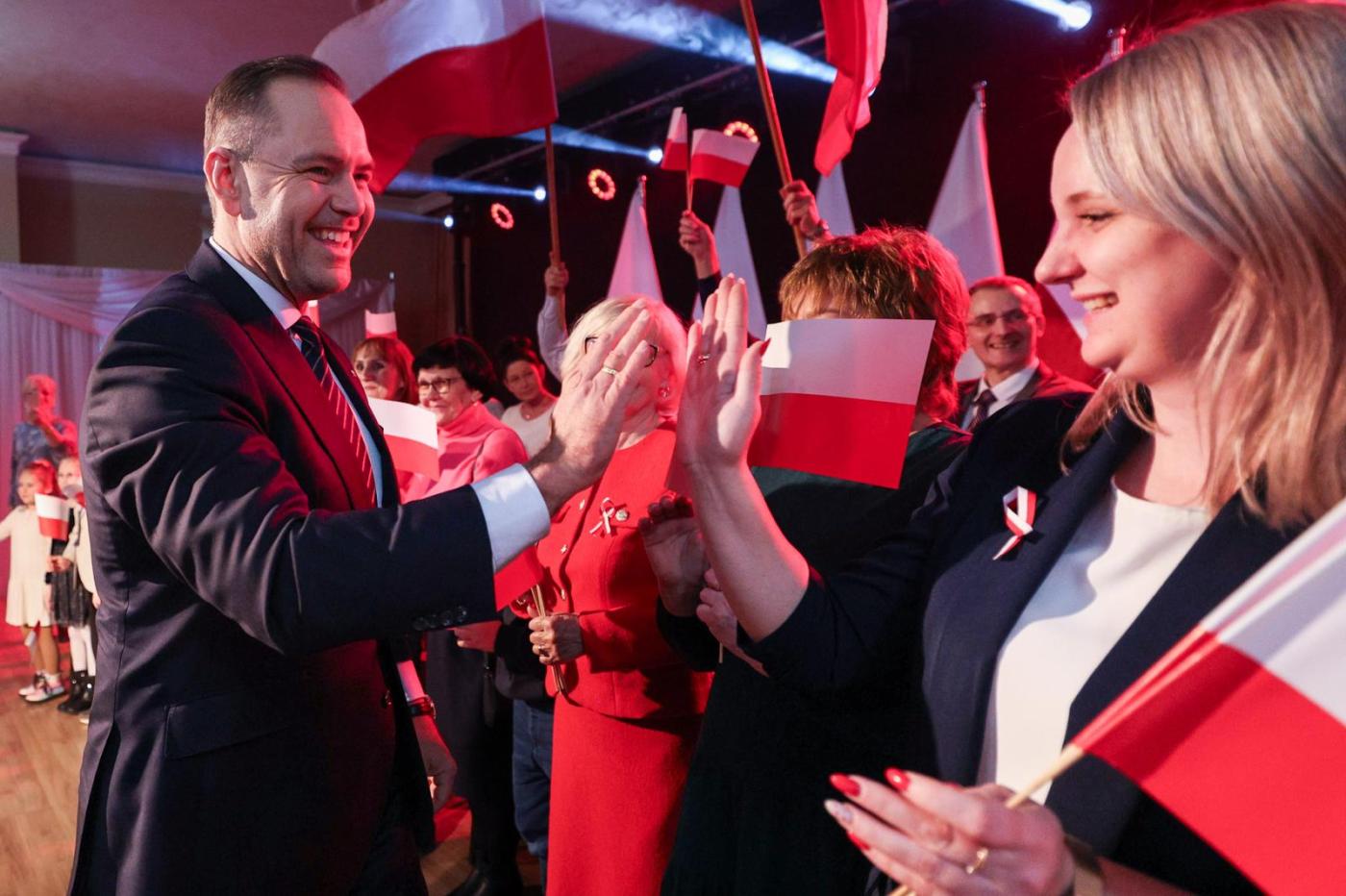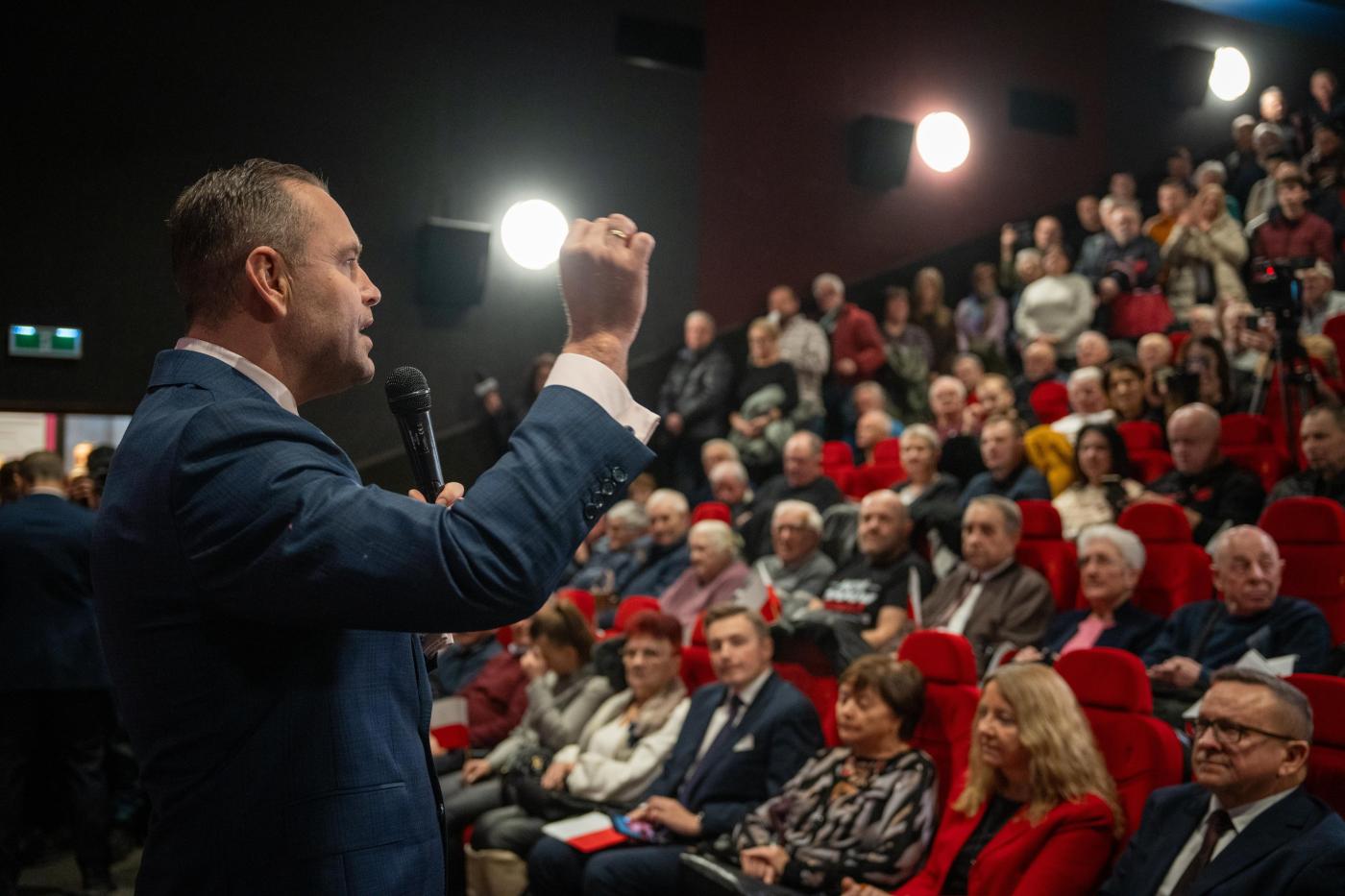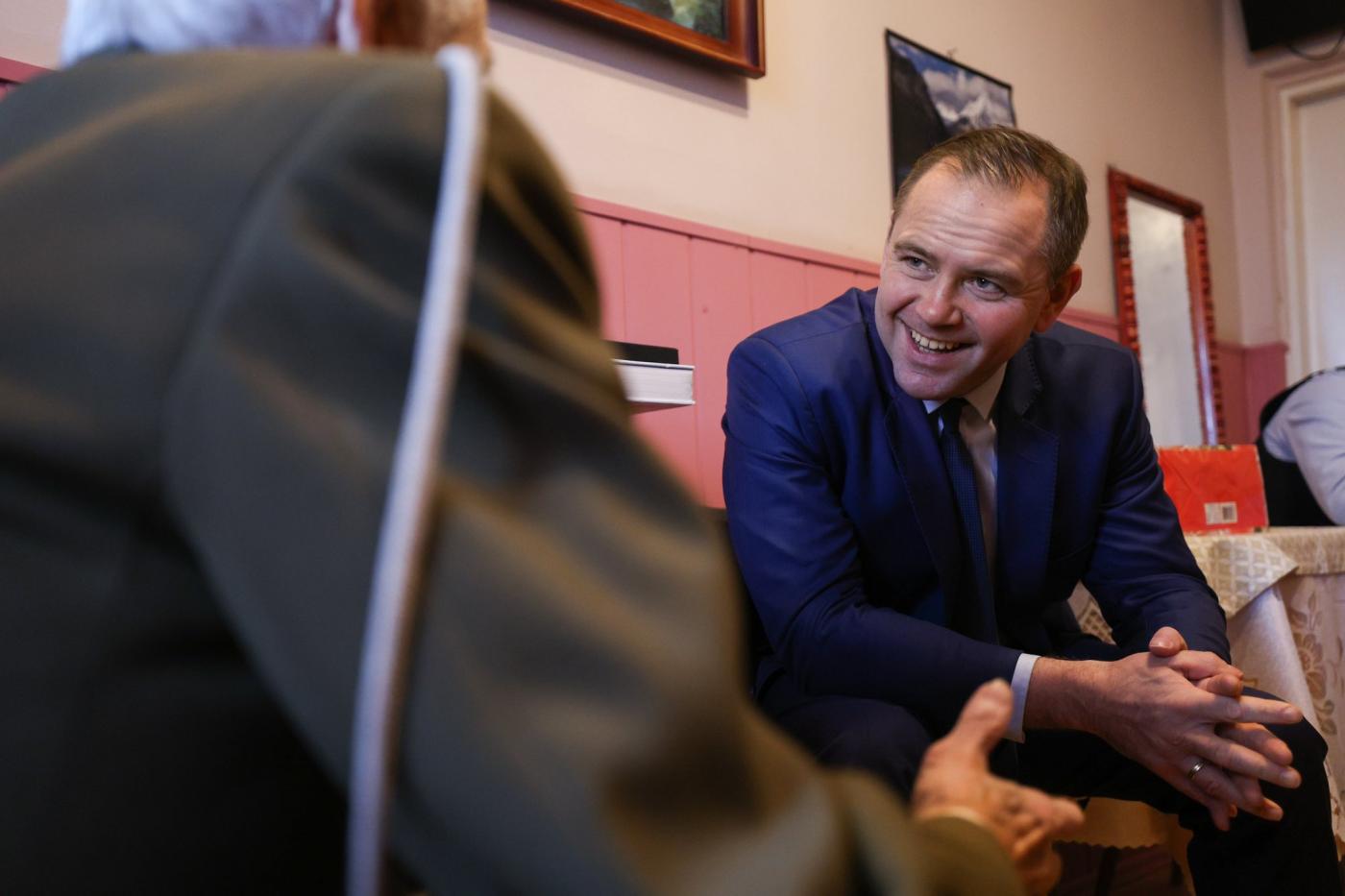Poland’s maritime future: Karol Nawrocki’s vision for prts, security, Navy and the sea
Poland’s access to the sea is a strategic asset—but is it fully utilized? As the presidential campaign unfolds, Daily Mare explores how candidates envision Poland’s maritime future, from economic potential to Baltic security. In this conversation, Karol Nawrocki outlines his priorities: revitalizing the Polish Navy, enhancing port infrastructure, and protecting coastal communities. With a focus on shipbuilding, renewable energy, and international cooperation, he offers a detailed roadmap for Poland’s maritime ambitions.
important opinions and comments politics news08 april 2025 | 08:08 | Source: Gazeta Morska | Prepared by: Kamil Kusier | Print

Karol Nawrocki | fot. materiały prasowe
What specific steps do you intend to take to modernize and develop the Polish Navy if elected President of Poland?
Karol Nawrocki: The Polish Navy has been the most neglected branch of our armed forces for decades. Fortunately, this trend has begun to reverse. The recent launching of the fifth minehunter in the “Kormoran” series is a positive step. Once the sixth vessel, currently under construction, is commissioned, we can consider our mine countermeasures needs adequately addressed. The Naval Shipyard, rescued from liquidation a few years ago, is now operating at full capacity on the first frigate of the “Miecznik” program—a project that must proceed without delays. However, I’m concerned that no contract has been signed for the “Orka” program, aimed at restoring our submarine capabilities. We risk losing both operational capacity and training continuity entirely. As President, I would push for the immediate signing of a contract for this program, ideally paired with a stopgap solution to bridge the gap.
Do you believe the Polish Border Guard requires increased funding to more effectively secure the nation’s maritime borders?
Absolutely. The realities of hybrid warfare, ongoing crises, and sabotage underscore the Border Guard’s critical role in Poland’s resilience. The commissioning of the new SG-301 vessel for the Maritime Border Guard Unit is encouraging, but it doesn’t fully address the unit’s development needs. More investment is essential.
What changes to the Maritime Search and Rescue Service (SAR) system do you see as critical to improving the efficiency of maritime rescue operations?
Beyond the obvious need for adequate funding and investment, personnel issues are key. SAR competes in a highly attractive labor market for seafarers, yet its pay is a fraction of what private shipowners offer. I’d consider gradually extending to SAR personnel some of the benefits enjoyed by other state services. Another priority should be greater integration of civilian SAR capabilities with those of the Navy and the Maritime Border Guard Unit. Resources should be deployed based on optimal use of available assets, breaking down artificial silos that hinder coordination.
As President, would you engage in promoting domestic production of naval vessels and equipment for maritime services? If so, how?
To the “Kormoran,” “Miecznik,” and “Orka” programs, I’d add “Delfin”—a plan to build two modern reconnaissance ships to replace the aging ORP Hydrograf and ORP Nawigator. Polish shipyards, particularly the Naval Shipyard, as well as the Remontowa and NAUTA groups, have proven their ability to construct advanced vessels. Where standalone production isn’t feasible, they excel as key partners in consortia.
What steps would you take to enhance international cooperation in protecting Poland’s territorial waters?
Sweden and Finland’s accession to NATO has been a game-changer. Alongside other Baltic NATO navies, we must continually improve readiness and interoperability—both for conventional warfare and the subthreshold threats we already face.
What actions would you take to develop and modernize Polish seaports?
Polish ports are a remarkable success story. In key cargo categories, like containerized goods, throughput has surged manifold in recent years, delivering massive benefits to the state budget and the wider economy. We’re talking hundreds of thousands of jobs and tens of billions in tax and customs revenue from goods entering Poland’s customs area. Efficient export access to global markets is also vital for Polish businesses. We must press ahead with projects like the deepwater terminal in Świnoujście, the outer port in Gdynia, and the expansion of Gdańsk’s Baltic Hub. Landside access investments—such as upgrading the 201 railway line or building Gdynia’s Red Road—are equally critical. I’d proactively hold the government accountable for any delays or neglect in these areas.
What role do maritime transport and inland shipping play in your economic strategy?
They’re absolutely central. Maritime transport still dominates global trade, while inland shipping offers the cleanest, cheapest option for certain goods. Poland lags far behind European peers, where inland waterways handle up to 10-15% of freight; here, it’s less than 1%. We have significant catching up to do.
Do you support the construction of new transshipment and logistics terminals in Polish ports?
Yes, I’ve already highlighted key projects like the deepwater terminal in Świnoujście and others. I’d also point to the government’s promised grain terminal in Gdańsk as another example.
What initiatives would you pursue to boost the competitiveness of Poland’s shipbuilding industry?
This is a vast topic, but let me highlight one issue: the fragmented ownership of state-controlled shipbuilding assets. Even under the previous United Right government—which I credit for investing in production and repair capacity—efforts were spread across disparate entities, often under different ministries. For instance, we have shipyards in the PGZ group and the ARP group, with ownership ranging from direct stakes to complex structures like closed-end investment funds. This chaos has led to order cannibalization and management inefficiencies. We need a single, coherent authority—a promise partly behind the creation of a dedicated Ministry of Maritime Economy from 2015-2019. It’s time to deliver on that.
How would you improve the security of critical port infrastructure against cyberattacks and terrorist threats?
Port security services have too often been treated as glorified private security firms, sometimes outsourced to retirees supplementing meager pensions. I believe state port authorities should develop these capabilities within their corporate groups, investing heavily in professionalization.
What’s your stance on developing offshore wind farms in the Baltic Sea?
They’re not a cure-all for Poland’s energy challenges, but with new capacity at a premium in the coming years, and given the Baltic’s favorable wind conditions, offshore wind is more efficient than onshore. Plus, wind farm orders boost shipbuilding, and service ports invigorate mid-sized hubs like Ustka, Łeba, and Władysławowo. Current projects should absolutely continue.
Do you see potential in technologies for harnessing energy from waves and tidal currents?
It’s an intriguing idea, though I associate it more with oceanic coastlines where tides are stronger. If viable technologies emerge for Polish conditions, we should seize the opportunity. Experts and scientists should have the final say.
What support mechanisms for investors in renewable maritime energy would you introduce?
The cornerstone should be a well-calibrated contract for difference. Set the price right, and it enables commercially viable projects funded through capital markets without burdening taxpayers. Given looming power shortages—exacerbated by the current government’s nuclear delays—demand for this energy is assured. The key is ensuring profitability.
What steps would you take to protect Polish fishermen’s interests internationally?
Quota negotiations are always fierce; we need allies. In theory, quotas aim to rebuild fish stocks for future generations. Yet fishermen tell me Polish waters are overfished, and even small quotas can be hard to meet. We should curb industrial feed-fishing—for meal and such—so more fish reach viable sizes for traditional coastal catches and reproduction. The interests of different fishing sectors need balancing, but with greater emphasis on traditional small-boat fishing. Beyond economics, it’s a cultural heritage vital to our coastal identity.
Do you plan to propose legislative initiatives, and if so, what reforms would you pursue regarding fishing quotas and marine resource protection?
There’s room for improvement in Polish legislation here, but I won’t prejudge specifics—this is a detailed area needing expert input. I see the President’s National Development Council as the right body to work with stakeholders on a concrete bill, which I’d then submit as a presidential initiative.
see also
Buy us a coffee, and we’ll invest in great maritime journalism! Support Gazeta Morska and help us sail forward – click here!
Kamil Kusier
redaktor naczelny
gallery













comments
Add the first comment
see also
The sea as an instrument of power: the maritime dimension of the U.S. National Security Strategy of 2025
Between promises and delivery: Poland’s maritime economy in 2025
Defence minister Władysław Kosiniak-Kamysz on a generational shift in the Polish Navy and Baltic deterrence
Indonesia 2025-2030: the maritime pillar of Southeast Asia’s growth
Shadows of Putin on the Baltic Sea
Piotr Gorzeński, president of the Port of Gdynia: I prioritise consistency over competition
“Globalization is a necessity, not a choice.” Andrzej Jaworski on the inevitable processes of the modern economy
Autonomous systems to become the backbone of NATO’s maritime security
Energy Currents 2025. Europe at a critical point of transformation. Which path will Poland take?
Energy Currents 2025: key innovations and strategic dilemmas in Europe’s energy transition
ADVERTISEMENT
ADVERTISEMENT